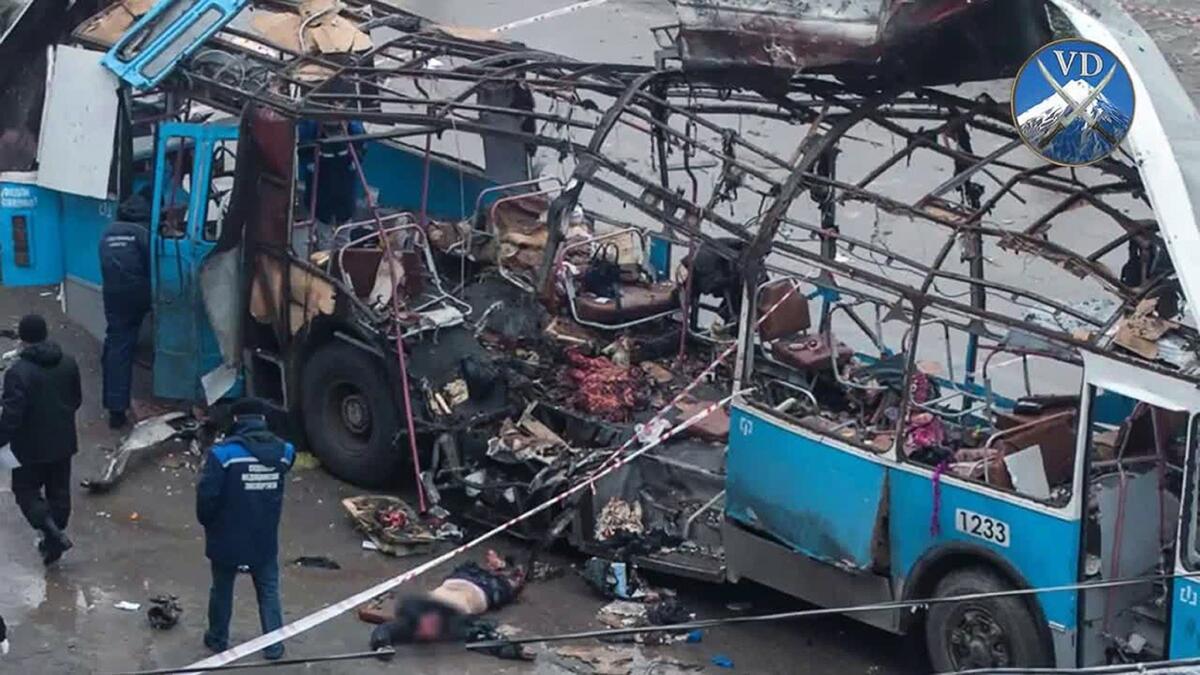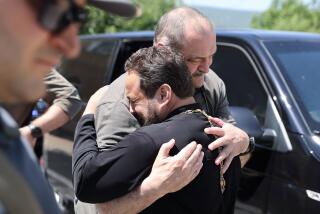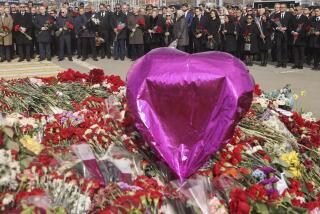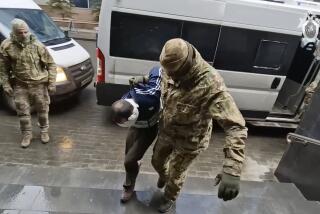Russians name Volgograd suicide bombers, arrest alleged accomplices

MOSCOW -- Two suicide bombers whose attacks last month in Volgograd raised fears of terrorist strikes in Russia during the coming Olympic Games have been identified and two accomplices arrested, authorities said Thursday.
The two bombers struck the Volgograd’s railroad station Dec. 29 and a crowded trolley bus the next day, killing 34 people in all. The city is about 400 miles northeast of Sochi, site of the Games, and near the Caucasus region, which has long been a battleground between Islamist militants and security forces.
“The two suicide bombers were identified as members of the so-called Buynaksk terrorist group: Asker Samedov and Suleiman Magomedov,” read a statement on the Russian Anti-Terrorist Committee’s official website, referring to a town in the restive Dagestan region.
The statement identified two brothers, Magomednabi and Tagir Batirov, who had been detained as alleged accomplices in helping to bring the suicide bombers to Volgograd.
Authorities last month had initially said the bomber who struck the railway station was a woman, but later said the attack was carried out by a man identified at the time as Pavel Pechenkin, reportedly a Russian who had converted to Islam.
A video released in mid-January on an Islamist website showed two men identified only as Abdurkhman and Suleiman who were said to be preparing to carry out the two suicide attacks. The same site also carried a statement by a commander of the group threatening more terrorist acts aimed against Sochi Olympics.
In June, another militant leader -- Doku Umarov, chief of Islamist resistance in the North Caucasus -- threatened in a video statement to unleash war on the Sochi Olympic Games “to be held on the bones of our ancestors.”
Two weeks ago, thousands of police and security officers deployed in the Sochi area were looking for a suspected female bomber from Dagestan allegedly seen recently in Sochi. Her photograph was distributed to every police officer and hotel in the area, but there was no subsequent report about whether she was found or what might have become of the suspect.
Volgograd had been targeted before by terrorists: An explosion on a crowded bus in October killed six people and injuring 33.
Gennady Gudkov, a former Soviet and Russian intelligence official and former deputy head of the Russian parliament’s Security Committee, said he was inclined to trust the latest official accounts of last month’s Volgograd attacks but warned the problems of security had been far from resolved in the run-up to the Sochi Games.
“They concentrated thousands of police and security officers in and around Sochi to hopefully prevent any terrorist attacks in the Games’ vicinity, as well as in Moscow and St. Petersburg for the duration of the Games, but they left the rest of the country almost entirely open for such attacks,” Gudkov told The Times.
Russian President Vladimir Putin last week vowed to keep the athletes and visitors of the Games safe. About 40,000 police and special forces officers will be enforcing security at the Games under the command of an round-the-clock headquarters, Putin said in televised interviews with Russian and foreign television networks.
“We have a perfect understanding of the scope of the threat and how to deal with it and how to prevent it,” he said. “I hope that our law enforcement agencies will deal with it with honor and dignity, the way it was during other major sports and political events.”
More to Read
Sign up for Essential California
The most important California stories and recommendations in your inbox every morning.
You may occasionally receive promotional content from the Los Angeles Times.










